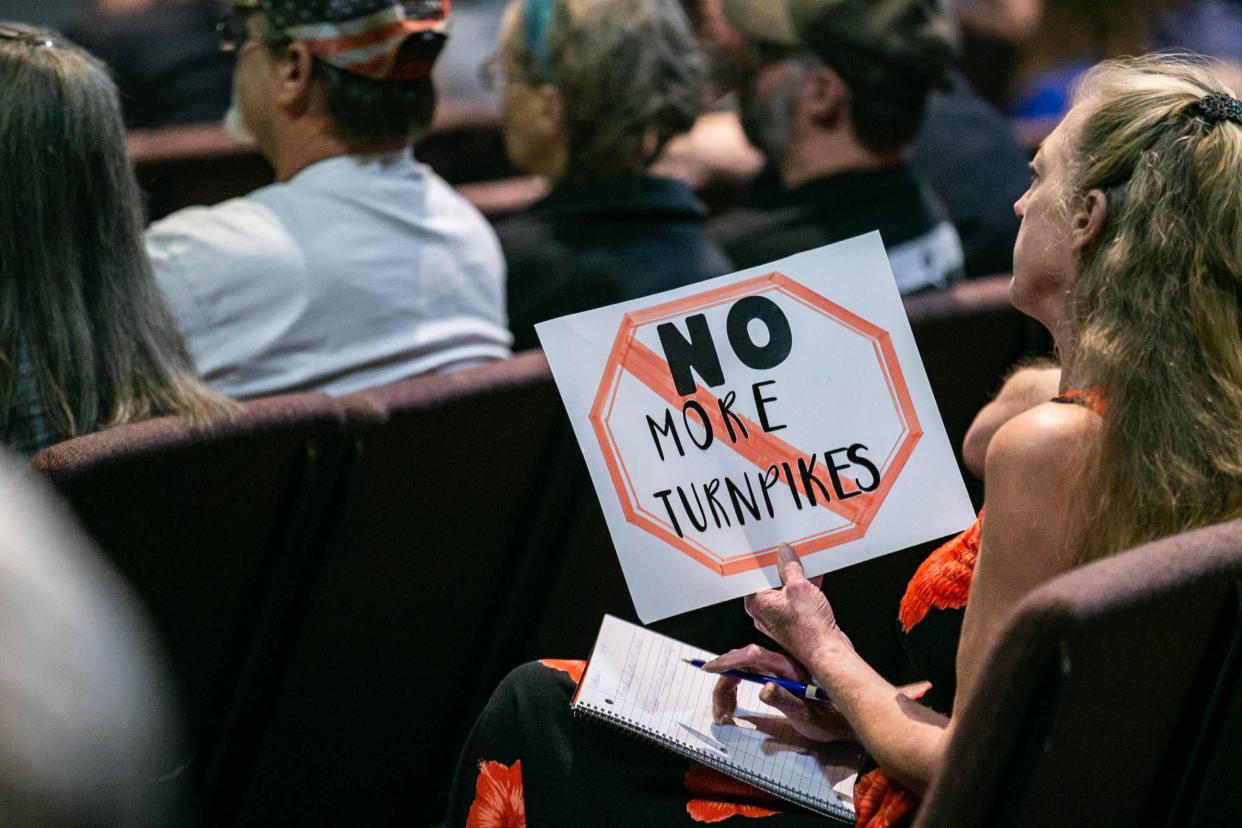Guest: Dear OTA… Can you work it out like good Oklahoma neighbors?

Dear OTA … I thought we were neighbors …
On May 31, the Oklahoma Supreme Court sided with the Oklahoma Turnpike Authority (OTA), arguing that because the public had been technically notified, the turnpike authority did not violate the Open Records Act, and therefore, they could continue using eminent domain to assemble land for the ACCESS Oklahoma project. While this decision was disappointing, it was not surprising. In the court's eyes, eminent domain has always been required to overcome holdouts, i.e., any landowner who intentionally blocks a public infrastructure project, thus causing a market failure.
In Berman v. Parker (1954) the Supreme Court first allowed the use of eminent domain for clearing slums, i.e., to build a large-scale public housing project in Washington, D.C. Next, Poletown Neighborhood Council v. Detroit (1981) allowed the taking of the entire ethnic neighborhood of Poletown, a suburb of Detroit, to build a new GM Cadillac production facility. Finally, Kelo v. City of New London (2005), allowed the use of eminent domain to overcome seven holdouts, including the home of Ms. Susette Kelo, to build a new Pfizer Corp. headquarters, on grounds that the new jobs and tax revenues it created constituted a legitimate “Public Use” under the Takings Clause [Fifth Amendment].
Another take: If we are to grow, develop and prosper as a society, new road construction is essential.
Following the controversial Kelo decision, there was a serious effort by state legislatures across the United States seeking to severely restrict the use of eminent domain for strictly private use. Nevertheless, most municipal governments chose not to change their eminent domain laws, i.e., rather than giving up such a powerful bargaining tool. As recently as 2019, the state of Texas declared that building new high school, college and professional sports stadiums constituted a legitimate “Public Use” and that “Just Compensation” would be increased by 250%, i.e., to entice rogue landowners not to hold out.
What is most bothersome about this whole turnpike mess is how it has been able to short-circuit the entire public planning process. If all the OTA needs to do is to publicly post a simple “announcement for informational purposes only,” what’s the point in meeting with us at all?
Back in 2002, there was one last remaining landowner blocking the expansion of Oklahoma Memorial Stadium. But rather than use eminent domain, the University of Oklahoma chose to negotiate with the holdout personally. She was an elderly widow who had been living on Faerie Queen Lane, just east of Jenkins Avenue, for 30 years, and she just couldn’t bear the thought of losing her prized rose bushes. Talking with her over coffee at the kitchen table, Ms. Deborah Wollenberg, the OU negotiator, suddenly had an idea, “Say, we have this lovely house right across campus. … what if a couple of big fellas from Physical Plant came over and transplanted your rose bushes at the new place?!?” The widow was delighted … and she agreed immediately … and that was how OU got the land for the east upper deck expansion of Oklahoma Memorial Stadium. They worked it out like good Oklahoma neighbors. …
With a project as monumental as the ACCESS Oklahoma turnpike, costing upward of $1.5 billion, uprooting over 200 families, some of whom have probably owned the properties since the Land Run, cutting across prime nesting grounds by Lake Thunderbird, and running straight through the heart of Norman … I think we deserve more than a simple “announcement for informational purposes only.”
And what if we don’t even need this turnpike? …
Once again, dear OTA … I thought we were neighbors …

William L. Ridley earned his Ph.D. in Planning, Design and Construction from Gibbs College of Architecture at the University of Oklahoma in May 2023.
This article originally appeared on Oklahoman: Turnpike authority should work it out like good Oklahoma neighbors

